
Postharvest Research and Industry Implications
CEBAS-CSIC, Spain
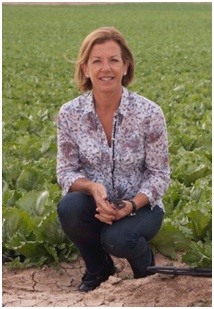 She is a Research Professor of the Spanish Council for Scientific Research (CSIC) in the CEBAS Institute in Murcia. She started her research activities on quality of fresh-cut fruits and vegetables at the University of California, Davis with her mentor Dr Adel Kader. She coordinates an expert group involved in fundamental and applied aspects of pre-harvest and post-harvest factors affecting quality and safety of fresh produce, particularly leafy vegetables. Her research activities are focused on providing high quality fresh vegetables through the selection of varieties, implementation of good agronomic practices and the optimization of processing operations including disinfection, packaging and storage conditions. She has a strong collaboration with producers and fresh-cut processors.
She is a Research Professor of the Spanish Council for Scientific Research (CSIC) in the CEBAS Institute in Murcia. She started her research activities on quality of fresh-cut fruits and vegetables at the University of California, Davis with her mentor Dr Adel Kader. She coordinates an expert group involved in fundamental and applied aspects of pre-harvest and post-harvest factors affecting quality and safety of fresh produce, particularly leafy vegetables. Her research activities are focused on providing high quality fresh vegetables through the selection of varieties, implementation of good agronomic practices and the optimization of processing operations including disinfection, packaging and storage conditions. She has a strong collaboration with producers and fresh-cut processors.
Systems Biology and Postharvest: Recent Advances
Katholieke Universiteit Leuven, Belgium
 Bart Nicolaï has an MSc in Agricultural Engineering (Ghent University, Belgium) and Applied Mathematics (University of Leuven, Belgium). He obtained a PhD in Applied Biological Sciences in 1994 at the University of Leuven (Belgium) where he now is a full professor. He is also director of the Flanders Centre of Postharvest Technology, a public-private partnership which was established by the University of Leuven and the Association of Belgian Horticultural Co-operatives in 1997. Since 2016 he is chair of the Biosystems department at the University of Leuven and also leads the postharvest research group of this department. His main research interests are postharvest biology and technology, refrigeration technology, heat and mass transfer, quality of fruit and vegetables, and mathematical modelling. He is editor-in-chief of the journal Postharvest Biology and Technology.
Bart Nicolaï has an MSc in Agricultural Engineering (Ghent University, Belgium) and Applied Mathematics (University of Leuven, Belgium). He obtained a PhD in Applied Biological Sciences in 1994 at the University of Leuven (Belgium) where he now is a full professor. He is also director of the Flanders Centre of Postharvest Technology, a public-private partnership which was established by the University of Leuven and the Association of Belgian Horticultural Co-operatives in 1997. Since 2016 he is chair of the Biosystems department at the University of Leuven and also leads the postharvest research group of this department. His main research interests are postharvest biology and technology, refrigeration technology, heat and mass transfer, quality of fruit and vegetables, and mathematical modelling. He is editor-in-chief of the journal Postharvest Biology and Technology.
Genetics and Molecular Basis of Physiological Disorders
Instituto de Agroquímica y Tecnología de Alimentos, Spain
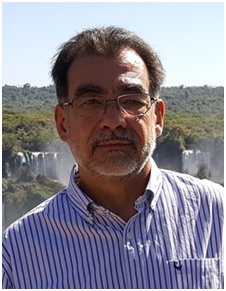 Graduate in Biological Science and PhD degree (Plant Physiology) at the University of Valencia. Postdoctoral stay at the University of California (Davis) working in ethylene biosynthesis and action. Since 1993 is working at the Institute of Agro-chemistry and Food Technology of the Spanish National Research Council (CSIC), and he is currently research professor at the Food Biotechnology Department. His current research activities are focused on two main objectives: 1) understanding metabolic pathways related to key components of fruit quality (as regulation of the biosynthesis and accumulation of carotenoids or ascorbic acid, as relevant examples) and 2) physiological and molecular responses of citrus fruits to postharvest stress conditions (chilling injury or water stress-related disorders). In our research projects we incorporated genomics strategies and the genetic diversity to understand the biological and genetic basis of fruit quality and postharvest disorders. We have strong collaborations with other colleagues and research groups around the world, especially but not exclusively, from Citrus-producing countries, and are actively involved in national and international consortiums. L. Zacarias has published more than 100 articles in international peer reviewed journals, review articles and book chapters, and invited to different national and international conferences. He was appointed as Director of the IATA (2004-2011), served in different national research committees and is currently part-time professor of Postharvest Biology in the University of Valencia.
Graduate in Biological Science and PhD degree (Plant Physiology) at the University of Valencia. Postdoctoral stay at the University of California (Davis) working in ethylene biosynthesis and action. Since 1993 is working at the Institute of Agro-chemistry and Food Technology of the Spanish National Research Council (CSIC), and he is currently research professor at the Food Biotechnology Department. His current research activities are focused on two main objectives: 1) understanding metabolic pathways related to key components of fruit quality (as regulation of the biosynthesis and accumulation of carotenoids or ascorbic acid, as relevant examples) and 2) physiological and molecular responses of citrus fruits to postharvest stress conditions (chilling injury or water stress-related disorders). In our research projects we incorporated genomics strategies and the genetic diversity to understand the biological and genetic basis of fruit quality and postharvest disorders. We have strong collaborations with other colleagues and research groups around the world, especially but not exclusively, from Citrus-producing countries, and are actively involved in national and international consortiums. L. Zacarias has published more than 100 articles in international peer reviewed journals, review articles and book chapters, and invited to different national and international conferences. He was appointed as Director of the IATA (2004-2011), served in different national research committees and is currently part-time professor of Postharvest Biology in the University of Valencia.
Health Quality of Horticultural Products: Is There a Place for Post-harvest Technologies?
Université Laval, Quebec, Canada
Health Quality of Horticultural Products: Is There a Place for Post-harvest Technologies?
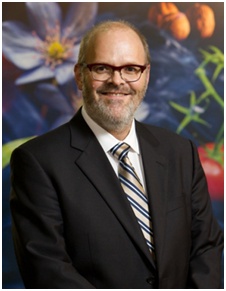 Trained in plant physiology, the laboratory of Dr. Yves Desjardins is using functional genomics tools, metabolomics and proteomics to study the adaptative phenomenon taking place in in vitro plantlets during the transition from heterotrophy to autotrophy and acclimatization. After being the Director of CRH at Laval University, he became involved in health effects of fruits and vegetables and was instrumental in the creation of the Institute of Nutrition and Functional Food (INAF). He has also been elected Chair of the ISHS commission Fruits and Vegetables and Health. He is now interested in the genetics of polyphenols production and accumulation in small fruits, their effect on diabetes, neurodegeneration and gut microbiota. His recent research focuses on the characterization and extraction of polyphenols and particularly proanthocyanidins found in blueberries and cranberries and their effects on cardiovascular diseases, metabolic syndrome, diabetes and other chronic diseases. He is the lead scientist of an important project to determine how polyphenols can modulate positively the gut microbiota and cause a reduction of low-grade inflammation at the origin of many chronic diseases. He collaborates on numerous projects related to health effects of FAV and his involved in a number of clinical trials on the effect of small fruit bioactive compounds (polyphenols) on type-2 diabetes and neurodegenerative diseases. He is the ISHS Board Member responsible for publications (2010-2016).
Trained in plant physiology, the laboratory of Dr. Yves Desjardins is using functional genomics tools, metabolomics and proteomics to study the adaptative phenomenon taking place in in vitro plantlets during the transition from heterotrophy to autotrophy and acclimatization. After being the Director of CRH at Laval University, he became involved in health effects of fruits and vegetables and was instrumental in the creation of the Institute of Nutrition and Functional Food (INAF). He has also been elected Chair of the ISHS commission Fruits and Vegetables and Health. He is now interested in the genetics of polyphenols production and accumulation in small fruits, their effect on diabetes, neurodegeneration and gut microbiota. His recent research focuses on the characterization and extraction of polyphenols and particularly proanthocyanidins found in blueberries and cranberries and their effects on cardiovascular diseases, metabolic syndrome, diabetes and other chronic diseases. He is the lead scientist of an important project to determine how polyphenols can modulate positively the gut microbiota and cause a reduction of low-grade inflammation at the origin of many chronic diseases. He collaborates on numerous projects related to health effects of FAV and his involved in a number of clinical trials on the effect of small fruit bioactive compounds (polyphenols) on type-2 diabetes and neurodegenerative diseases. He is the ISHS Board Member responsible for publications (2010-2016).
Recent Advances in Microbiome: Safety and Decay Aspects
Plant Science, University of California, Davis
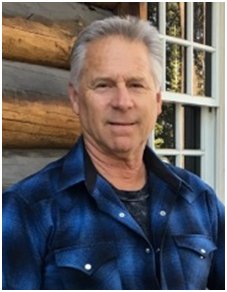 Trevor Suslow, Ph.D. is the Extension Research Specialist at the University of California, Davis, Department of Plant Sciences, with statewide responsibilities in quality and safety of perishable horticultural commodities. Dr. Suslow’s program spans preharvest to postharvest research and outreach education on diverse fresh and minimally-processed horticultural foods from annual row crops to tree and vine commodities. He has served on the Center for Produce Safety Technical Committee since its creation in 2008. His research combines lab and on-farm research on E. coli, Salmonella, and Listeria in conventional and organic production systems, for the purpose of identifying opportunities for optimal microbial reductions and delivery of safe food to the consumer. Dr. Suslow received his BSc. In Agricultural Sciences with honors and his Ph.D. in Plant Pathology from the University of California, Berkeley. Before joining UC Davis, he was a Research Scientist and Director of Product Research for DNA Plant Technologies, Inc. for 15 years. Trevor was named to Food Safety News list of The Best of Food Safety in Education and recently selected to The Packer 25 Profiles in Leadership award. He is a Lead Instructor for the PSA, FSPCA, and Sprout Safety Alliance and served as Faculty Director for the UC Postharvest Technology Center since July 2016.
Trevor Suslow, Ph.D. is the Extension Research Specialist at the University of California, Davis, Department of Plant Sciences, with statewide responsibilities in quality and safety of perishable horticultural commodities. Dr. Suslow’s program spans preharvest to postharvest research and outreach education on diverse fresh and minimally-processed horticultural foods from annual row crops to tree and vine commodities. He has served on the Center for Produce Safety Technical Committee since its creation in 2008. His research combines lab and on-farm research on E. coli, Salmonella, and Listeria in conventional and organic production systems, for the purpose of identifying opportunities for optimal microbial reductions and delivery of safe food to the consumer. Dr. Suslow received his BSc. In Agricultural Sciences with honors and his Ph.D. in Plant Pathology from the University of California, Berkeley. Before joining UC Davis, he was a Research Scientist and Director of Product Research for DNA Plant Technologies, Inc. for 15 years. Trevor was named to Food Safety News list of The Best of Food Safety in Education and recently selected to The Packer 25 Profiles in Leadership award. He is a Lead Instructor for the PSA, FSPCA, and Sprout Safety Alliance and served as Faculty Director for the UC Postharvest Technology Center since July 2016.
Fresh Produce Supply Chain: Innovations to Reduce Postharvest Losses
NSW Dept. Primary Industries, Australia
Fresh Produce Supply Chain: Innovations to Reduce Postharvest Losses
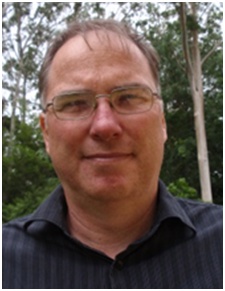 John Golding is a Senior Research Scientist with the NSW Department of Primary Industries in Australia. He works with all supply chain partners in both domestic and export supply chains to optimize produce quality with a range of horticultural commodities, including citrus and cherries. John has a PhD in postharvest horticulture from the University of Western Sydney (Australia) and worked as a postdoc at Michigan State University (US) in apple storage. For the last 15 years, John has worked with local horticultural industries to improve product quality to satisfy consumer expectations. He has published 50 refereed scientific papers and has recently updated the 6th edition of the ‘Postharvest’ textbook with Professor Ron Wills. He is a conjoint Senior Lecturer at the University of Newcastle and an Adjunct Senior Researcher at the University of Tasmania, where he co-supervises six PhD candidates in postharvest and food science.
John Golding is a Senior Research Scientist with the NSW Department of Primary Industries in Australia. He works with all supply chain partners in both domestic and export supply chains to optimize produce quality with a range of horticultural commodities, including citrus and cherries. John has a PhD in postharvest horticulture from the University of Western Sydney (Australia) and worked as a postdoc at Michigan State University (US) in apple storage. For the last 15 years, John has worked with local horticultural industries to improve product quality to satisfy consumer expectations. He has published 50 refereed scientific papers and has recently updated the 6th edition of the ‘Postharvest’ textbook with Professor Ron Wills. He is a conjoint Senior Lecturer at the University of Newcastle and an Adjunct Senior Researcher at the University of Tasmania, where he co-supervises six PhD candidates in postharvest and food science.
Using Ethylene Supplementation to Minimize Waste
Cranfield University, UK
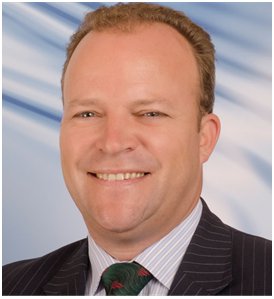 In addition to his role on the University's Senior Management Team, Leon also leads the environment and agrifood research and teaching activities of the University; these were amalgamated in 2013 and further expanded in 2016. The theme now houses four research centres: Cranfield Soil and Agrifood Institute, Cranfield Institute for Resilient Futures, Centre for Atmospheric Informatics and Emissions Technology and Cranfield Institute of Agriinformatics plus two of the UK Government’s Agritech Centres of Innovation - AgriEPI and CHAP.
In addition to his role on the University's Senior Management Team, Leon also leads the environment and agrifood research and teaching activities of the University; these were amalgamated in 2013 and further expanded in 2016. The theme now houses four research centres: Cranfield Soil and Agrifood Institute, Cranfield Institute for Resilient Futures, Centre for Atmospheric Informatics and Emissions Technology and Cranfield Institute of Agriinformatics plus two of the UK Government’s Agritech Centres of Innovation - AgriEPI and CHAP.
Leon graduated from Imperial College, London. He completed his MSc and PhD in Postharvest Technology at Cranfield University. His personal scholarship has been driven by a need to preserve and maintain the quality and safety of fresh produce by better understanding the physiological, biochemical and molecular changes which occur after harvest in order to reduce waste and thereby help ensure greater food security across the world.
Relation Between Pre-harvest Conditions, Harvest Maturity and Postharvest Performance
Pacific Agri-Food Research Centre, Canada
Relation Between Pre-harvest Conditions, Harvest Maturity and Postharvest Performance
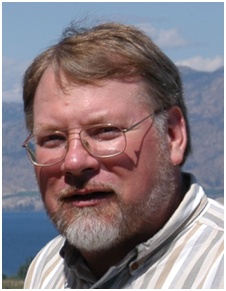 Peter Toivonen has an MSc in Environmental Biology (University of Guelph, Ontario, Canada) and a PhD in Plant Stress Physiology in 1985 from Simon Fraser University, British Columbia (Canada). He has been a researcher in the area postharvest physiology at Agriculture and Agri-Food Canada since 1998, first working on vegetables and small fruits at Agassiz, British Columbia and in 1995 he transferred to Summerland, British Columbia where he first worked on quality and safety of fresh-cut fruits and vegetables and stone fruit quality. Recently he has shifted focus characterization of storage and shipping potential for newly developed apple and sweet cherry cultivars at the Summerland Research and Development Centre, Summerland. His main research interests are postharvest biology and technology, stress physiology, and understanding the impact of pre-harvest factors and fruit maturity on postharvest performance in tree fruit.
Peter Toivonen has an MSc in Environmental Biology (University of Guelph, Ontario, Canada) and a PhD in Plant Stress Physiology in 1985 from Simon Fraser University, British Columbia (Canada). He has been a researcher in the area postharvest physiology at Agriculture and Agri-Food Canada since 1998, first working on vegetables and small fruits at Agassiz, British Columbia and in 1995 he transferred to Summerland, British Columbia where he first worked on quality and safety of fresh-cut fruits and vegetables and stone fruit quality. Recently he has shifted focus characterization of storage and shipping potential for newly developed apple and sweet cherry cultivars at the Summerland Research and Development Centre, Summerland. His main research interests are postharvest biology and technology, stress physiology, and understanding the impact of pre-harvest factors and fruit maturity on postharvest performance in tree fruit.
Peter Toivonen is an Associate Editor for Postharvest Biology and Technology. He is also the Canadian representative and current chair of the Inter-American Institute for Cooperation on Agriculture sponsored PROCINORTE Task Force on Tree Fruit. He has been a member of several organizing and/or scientific committees of international workshops and symposia that were sponsored by the ISHS and has been frequently solicited as a keynote or invited speaker.
Postharvest Technologies: CA Storage, MA Packaging and Ethylene Management
Mitchigan State University, USA
Postharvest Technologies: CA Storage, MA Packaging and Ethylene Management
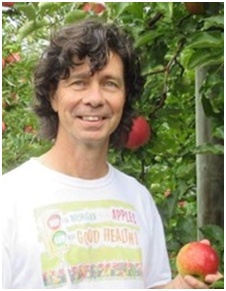 Randy Beaudry is a postharvest physiologist working at Michigan State University (50% research, 50% extension) in the Department of Horticulture since 1989. Dr. Beaudry's activities focus on both practical and fundamental aspects of preserving the postharvest quality of fruits and vegetables. Specific areas of expertise include modified atmosphere packaging, controlled-atmosphere storage, the use of evaporative cooling in developing countries, the use of bioactive volatile compounds including 1-MCP, non-destructive quality assessment, postharvest disorder biology and control, and the biochemistry of aroma volatiles. Much of Dr. Beaudry's research is service-oriented and he works closely with the apple industry in Michigan, the international blueberry shipping industry, and a storage innovation program in India. Current emphasis for the Great Lakes apple fruit industry is placed on the development of storage protocols for the CO2 sensitive variety ‘Honeycrisp’ and evaluating the use of new 1-MCP formulations.
Randy Beaudry is a postharvest physiologist working at Michigan State University (50% research, 50% extension) in the Department of Horticulture since 1989. Dr. Beaudry's activities focus on both practical and fundamental aspects of preserving the postharvest quality of fruits and vegetables. Specific areas of expertise include modified atmosphere packaging, controlled-atmosphere storage, the use of evaporative cooling in developing countries, the use of bioactive volatile compounds including 1-MCP, non-destructive quality assessment, postharvest disorder biology and control, and the biochemistry of aroma volatiles. Much of Dr. Beaudry's research is service-oriented and he works closely with the apple industry in Michigan, the international blueberry shipping industry, and a storage innovation program in India. Current emphasis for the Great Lakes apple fruit industry is placed on the development of storage protocols for the CO2 sensitive variety ‘Honeycrisp’ and evaluating the use of new 1-MCP formulations.
Objectifying postharvest sensory quality of fruits and vegetables by means of a Sensomics approach
Technische Universität München (TUM), Germany
Objectifying postharvest sensory quality of fruits and vegetables by means of a Sensomics approach
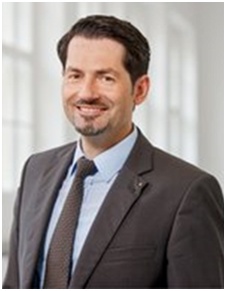 Prof. Hofmann explores the screening, identification and quantification of organoleptic, bioactive and technofunctional natural products in foodstuffs and raw materials of vegetable origin. He is also interested in the metabolism and structure-activity relationships of these compounds.
Prof. Hofmann explores the screening, identification and quantification of organoleptic, bioactive and technofunctional natural products in foodstuffs and raw materials of vegetable origin. He is also interested in the metabolism and structure-activity relationships of these compounds.
Following his studies in food chemistry at the University of Erlangen-Nuremberg, Prof. Hofmann obtained his doctorate (1995) and completed his postdoctoral studies (1998) in the Chemistry Department of TUM. In 1998, he was appointed Acting Director of the German Food Chemistry Research Institute and elected a member of the Leibniz Society. Prof. Hofmann was appointed as professor and Director of the Food Chemistry Institute at Münster University in 2002. In 2007, he returned to TUM as full professor in the newly established Chair of Food Chemistry and Molecular Sensors. Since 2007, he has been a member of the ZIEL Institute for Food and Health, since 2009 he has been Senior Vice President - Research and Innovation and since 2015 he has been 2015 Co-Director of the Bavarian Biomolecular Mass Spectrometry Center (BayBioMS). He is Senior Visiting Professor of the Faculty of Science of the Chulalongkorn University in Bangkok, Thailand (2015-18). As Chairman and coordinator of an European consortium, Prof. Hofmann successfully initiated the Knowledge and Innovation Community (KIC) ”EIT FOOD“ of the European Institute of Technology (EIT) in 2016. Prof. Hofmann is Editor in Chief of the Journal of Agricultural and Food Chemistry of the American Chemical Society.
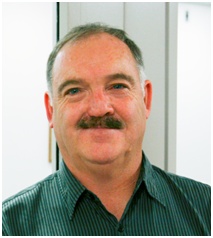 Chris Watkins is the Herman M. Cohn Professor of Horticulture, Postharvest Science in the School of Integrative Plant Science, at Cornell University, New York, USA. He is also the Director for Cornell Cooperative Extension (CCE), and Associate Dean in the College of Agriculture and Life Sciences, and College of Human Ecology. His BSc and MSc degrees were earned at the University of Auckland, New Zealand, and his PhD at Rutgers University, New Jersey, USA. His research and extension program is focused on maturity and ripening of new and traditional apple cultivars, the underlying mechanisms in fruit responses to storage conditions such as temperature, atmosphere, 1-MCP, and the interaction of these factors on quality and product losses. He has published over 150 peer reviewed, 17 book chapters, 44 conference proceedings, and 111 trade, newsletter and technical articles. In 2015, he was elected Fellow of the American Society for Horticulture Science.
Chris Watkins is the Herman M. Cohn Professor of Horticulture, Postharvest Science in the School of Integrative Plant Science, at Cornell University, New York, USA. He is also the Director for Cornell Cooperative Extension (CCE), and Associate Dean in the College of Agriculture and Life Sciences, and College of Human Ecology. His BSc and MSc degrees were earned at the University of Auckland, New Zealand, and his PhD at Rutgers University, New Jersey, USA. His research and extension program is focused on maturity and ripening of new and traditional apple cultivars, the underlying mechanisms in fruit responses to storage conditions such as temperature, atmosphere, 1-MCP, and the interaction of these factors on quality and product losses. He has published over 150 peer reviewed, 17 book chapters, 44 conference proceedings, and 111 trade, newsletter and technical articles. In 2015, he was elected Fellow of the American Society for Horticulture Science.